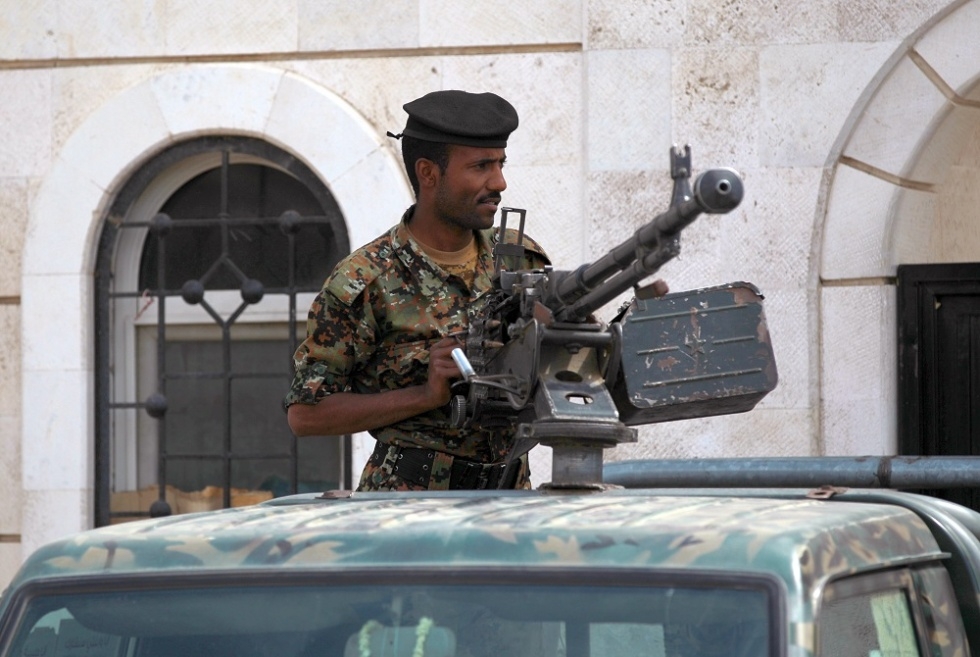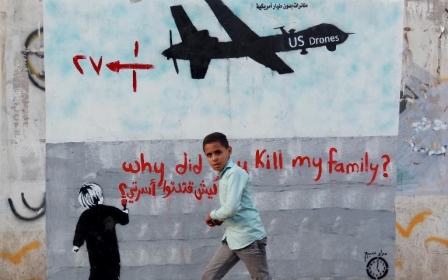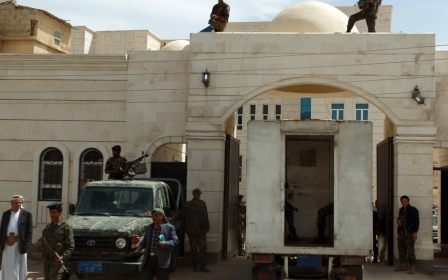Yemen's military launches fresh offensive against al-Qaeda

Yemeni military forces on Tuesday launched a fresh offensive against al-Qaeda in the south of the country, in efforts to capitalise on recent drone strikes that reportedly killed dozens of fighters.
The assaults come as the international group Friends of Yemen forum gathers in London to assess progress on political, economic and security initiatives and to urge for better international coordination to deliver more than $8bn worth of aid pledged to the country but so far largely undelivered in part due to the poor security situation.
Army plans to 'purge' al-Qaeda
The latest assaults saw government troops try to "purge" Al-Qaeda in the Arabian Peninsula (AQAP) fighters from southern towns in the Abyan and Shabwa provinces, according to an unnamed military official who spoke to AFP.
National Security Chief Ali al-Ahmadi told the agency that the Supreme Security Committee had decided to “eradicate all forms of security problems” that have plagued the country since an uprising forced former president Ali Abdullah Saleh to quit in February 2012.
The Yemeni and US drone strikes on towns in southern Yemen are believed to have killed at least 60 people. The identity of those killed is yet to be confirmed, and there are ongoing DNA tests to establish whether Nasser al-Wuhuayshi, leader of Al Qaeda in the Arabian Peninsula (AQAP), was killed in the attacks.
While the US insists that drone strikes allow it to take out high value targets in foreign countries, human-rights groups and activists continue to blast the legality and imprecise nature of drone attacks.
International community
The underlying instability has been widely blamed for ongoing turbulence in Yemen. On Monday, unknown armed men opened fire on a vehicle carrying German embassy employees in Sanaa, injuring a diplomat, in what was a suspected kidnap attempt. Foreigners are regularly targeted for kidnap by groups linked with al-Qaeda, who use hostages as political leverage against the government.
The Friends of Yemen forum will meet in London on Tuesday to discuss aid efforts, with Yemeni officials urging attendees to prioritise solving the country’s economic problems.
“To stabilise the political situation people need to see the standards of living, jobs and the services they lack,” Abu Bakr al-Qirbi, foreign minister of Yemen, told the Guardian on Tuesday.
“The Friends of Yemen need to prioritise so we can use the funds that are available wisely” he added.
The Friends of Yemen was set up in 2010 to coordinate international support for Yemen and is comprised of 39 countries and organisations. More than $8bn has been pledged in assistance, but much of it has not as yet been delivered.
“Due to the political changes which the government suffered from, and which also affected the performance of donor countries since the 2011 revolution, all of this resulted in a slowing down of the implementation of the pledges”, Amat al-Alim Alsoswa, director of the Executive Bureau for the Acceleration of Aid Absorption, told Reuters.
Only a fraction of the aid pledged to Yemen has been spent on much needed infrastructure projects, including the construction of new hospitals and road networks, due to ongoing political turmoil.
But the international community has also come under growing criticism for its failure to act, with the hashtag #ForgottenCrisis making the rounds on Twitter.
Although a national dialogue process was completed successfully in January, with plans in the pipeline to draw up a new constitution ahead of planned elections next year, the situation on the ground has deteriorated.
“While Yemen is wrestling with its new constitution, millions are going hungry, water is running out and dwindling fuel stocks are crippling production ahead of the harvest” Coletter Fearon, Yemen director of Oxfam, told a press conference on Monday.
The meeting on Tuesday will be co-chaired by Britain and Saudi Arabia with an announcement expected shortly after to assess future plans for the Friends of Yemen.
Middle East Eye propose une couverture et une analyse indépendantes et incomparables du Moyen-Orient, de l’Afrique du Nord et d’autres régions du monde. Pour en savoir plus sur la reprise de ce contenu et les frais qui s’appliquent, veuillez remplir ce formulaire [en anglais]. Pour en savoir plus sur MEE, cliquez ici [en anglais].




